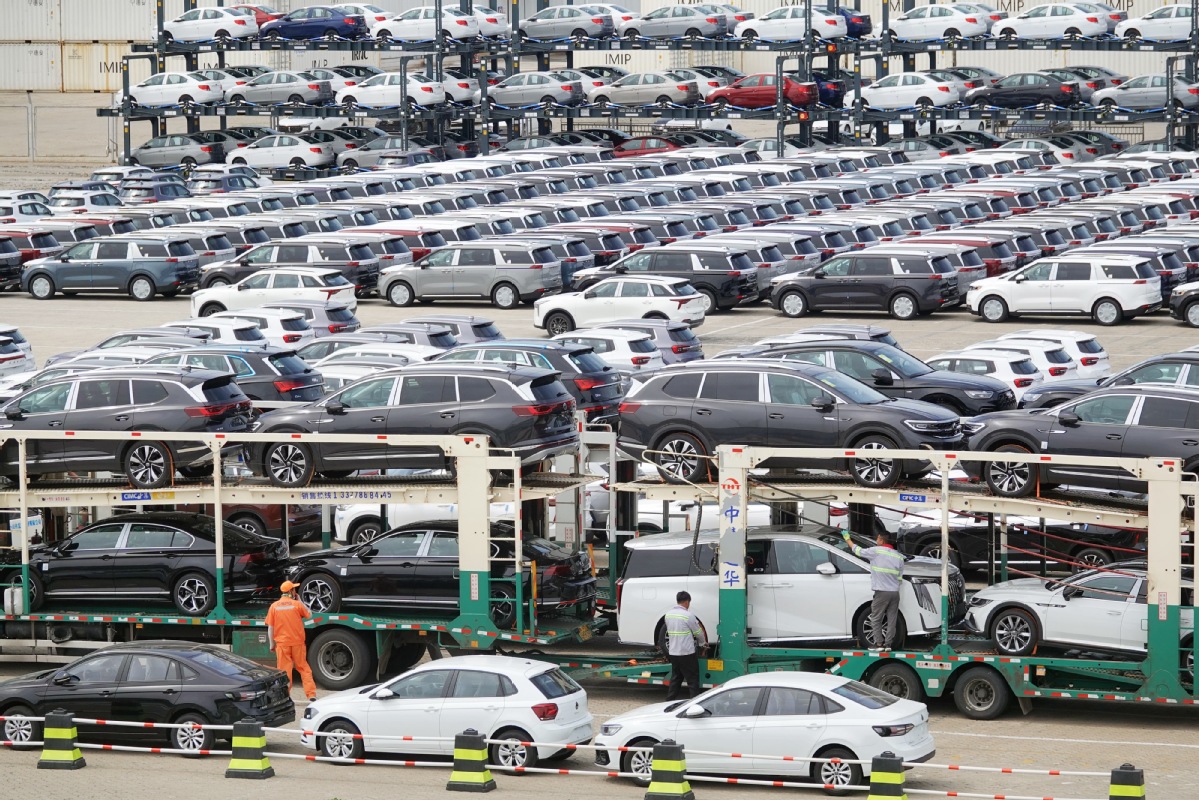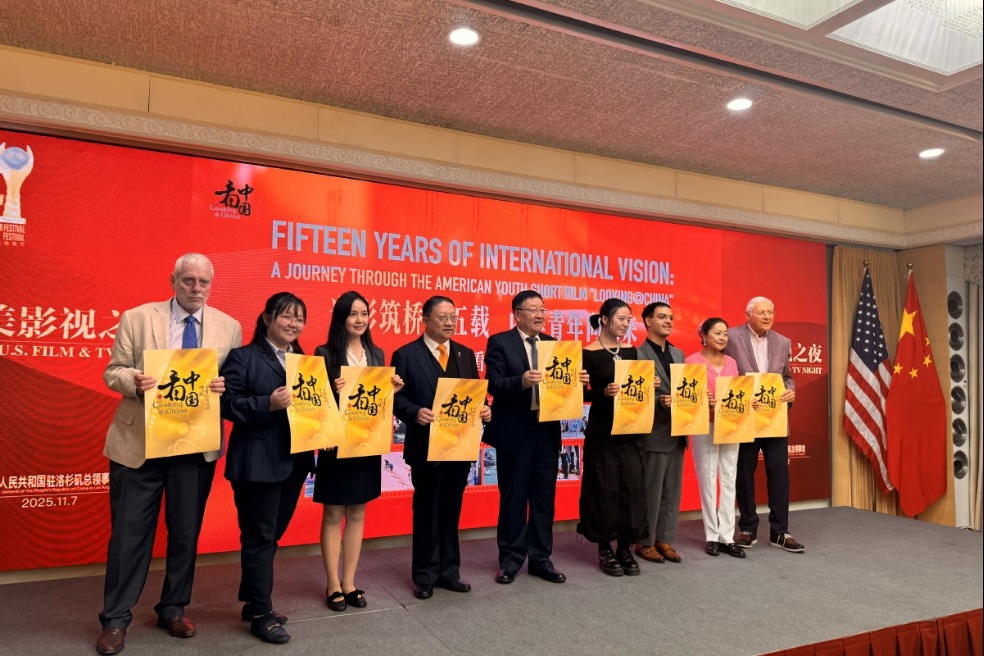Chinese auto brands on rise as they seize NEV opportunities
By CAO YINGYING | CHINA DAILY | Updated: 2023-07-10 07:09

Executives speak of potential to snatch car market dominance at the China Auto Forum
China's auto industry is experiencing a new phase of high-quality development, particularly in the field of new energy vehicles where it has established a competitive edge, said officials at the 2023 China Auto Forum, which was held from Wednesday to Friday in Shanghai.
China's vehicle production and sales have ranked first for 14 years in a row. The NEV sector has maintained top position in global production and sales for eight consecutive years.
And the market still holds significant growth potential. It is projected that peak domestic auto demand in China will reach around 40 million vehicles, according to Fu Bingfeng, executive vice-president and secretary-general of the China Association of Automobile Manufacturers, which hosted the forum.
Passenger vehicles will be the main driver of growth and market expansion will shift toward third- and fourth-tier cities as well as rural markets, Fu said.
Key measures will be taken to strengthen the construction of an independent innovation system and establish a self-controlled industry chain to foster a modern industrial system, Fu said at the forum.
Chinese brands are poised for a historic opportunity to overtake competitors in the global market, said Wang Jun, president of Changan Automobile, at the forum.
Chinese brands now hold the majority of the market share. In the first quarter, domestic passenger car brands captured a market share of 52.2 percent and the share is consistently increasing.
In the NEV sector, Chinese brands achieved a higher market share of 82.3 percent.
The rise of Chinese brands can be attributed to their ability to seize opportunities presented by the development of NEVs and intelligent connected vehicles, an official said.
In 2022, China's market share of NEVs accounted for more than 65 percent of the global total, maintaining its position as the world's leading NEV market for eight consecutive years.
China's 20 millionth NEV rolled off the production line at the GAC Aion's factory on July 3. It took 15 years to reach the first 10 million, while the second 10 million took only one year and five months.
Feng Xingya, president of GAC Group, said that although China has become a force in promoting the development of NEVs, it is important to recognize that the auto industry is more of a marathon than a sprint, which requires a long-term commitment and endurance.
"Sustained technological innovation is crucial to maintain our early-mover advantage in the NEV industry," he said.
GAC has invested approximately 6 percent of its revenue annually, totaling nearly 42 billion yuan ($5.79 billion), in independent research and development. In 2022, the group filed 3,255 new patent applications and invested an additional 6.5 billion yuan in R&D.
Yu Kai, founder and CEO of Chinese chipmaker Horizon Robotics, said that Chinese domestic brands have upgraded with intelligent connected features. An example is that 82 percent of Chinese-brand vehicles priced above 300,000 yuan are equipped with Level 2 plus driving-assist functions. Meanwhile, the rate is significantly lower in the models of joint ventures.
This shift positions China as a key market for global chip manufacturers, such as Nvidia, Qualcomm, Mobileye and Horizon Robotics, who prioritize launching advanced smart chips in domestic vehicles.
The fast-growing market also poses challenges for international carmakers. German auto giant Volkswagen, which has developed in the Chinese market for four decades, said that the country has become a "fitness center" for Volkswagen, which asks it to work harder.
Ralf Brandstaetter, chairman and CEO of Volkswagen Group China, said at the forum that the group has taken a series of measures to drive its development in the Chinese market. The group is focusing its strengths in the gasoline vehicle market and intensifying its efforts in the pure electric vehicle segment.
Based on the "In China, for China" strategy, Volkswagen has cooperated with local partners in information and entertainment systems, autonomous driving, chip design and battery manufacturing.
Brandstaetter said that Volkswagen is accelerating to reach "China speed" and has decreased the launch time for products and technologies through its partnerships by 30 percent.
At the forum, 16 major auto companies — including State-owned FAW, Dongfeng, SAIC and EV startups Nio, Xpeng, Li Auto, as well as Tesla — jointly signed a letter to maintain fair competition. The commitments include adhering to market regulations, avoiding disruptive pricing practices, promoting honest marketing and prioritizing quality.
Miao Changxing, an official at the Ministry of Industry and Information Technology, said that at this critical moment for China's auto market, it is important to uphold a competitive market environment, promote healthy market development and foster fair competition.
























